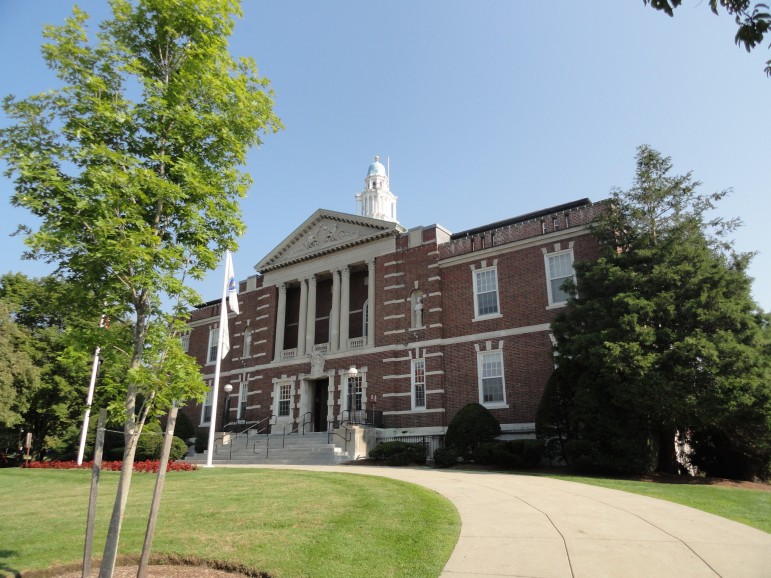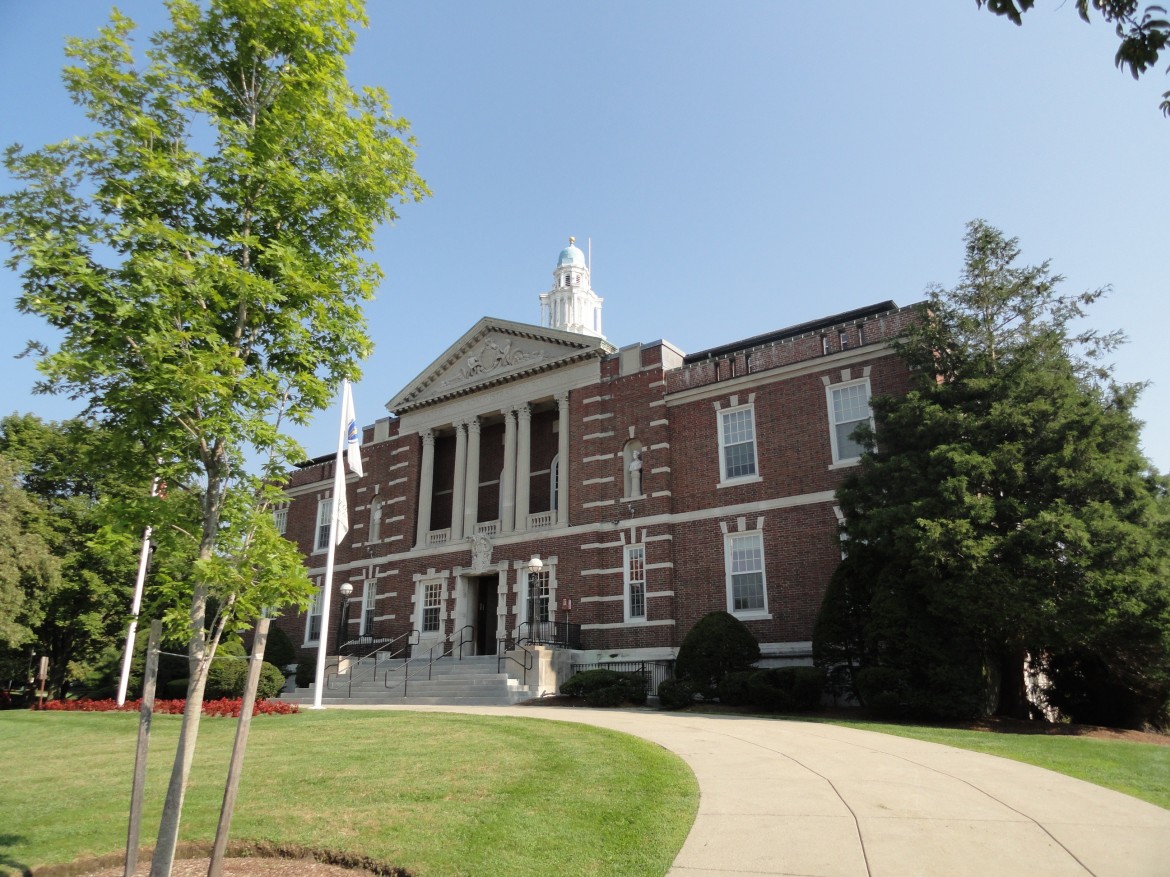
- Watertown Town Hall
- Many Watertown property owners will have some good news when they receive their tax bills – their taxes are going down!
Tuesday night, the Town Council voted to adopt the recommended rates, which will have a tax rate of 13.68 per $1,000 of assessed value (see your assessed value here). That increase the average tax bill by 4.35 percent or $236. The rates, however, differ significantly depending on type of property, Watertown Assessor Francis Golden said in his Fiscal Year 2016 tax classification presentation. (See the presentation by clicking here).
The rates for many single family homeowners and condo owners will drop this year. The news is not as good for owners of two- and three-family homes, which will see significant increases because values have leapt up.
Another big change is the addition of the big, luxury apartment buildings, such as those on Pleasant Street, and those coming on Arsenal Street, and a smaller building on Bacon and Howard streets. Golden said he sees the demand continuing as long as the buildings fill up quickly.
“Two of those big box apartment buildings sold at $60 million. I had them valued at $40 million,” Golden said. “The cash flow is so good that people are looking for other parcels they can do that that are so close to Boston.”
Debate on the Residential Exemption
Property taxes were a big topic of discussion during the recent elections. The town recently got a Home Rule Petition to the Legislature approved that allows the owner-occupied tax exemption to go from a maximum of 25 percent to as high as 30 percent.
The exemption gives relief to most, but not all, owner-occupied properties, Golden said. The 20 percent discount is paid for by the non-owner occupied homes – typically rentals in Watertown – but also some homes which are owner occupied.
If a home is assessed at more than $850,000, the taxes are higher even with an owner-occupied home, Golden said. Last year that threshold was $750,000.
East End Town Coucnilor Angeline Kounelis said she has pushed to make the tax break even higher for many years, and she continues to support that idea. She stressed that many properties in her district are two- and three-family homes.,
“So many property owners are feeling the pinch,” Kounelis said. “I will stick to it and hope my fellow councilors see the light.”
The tax increase for a two-family home with a 25 percent owner-occupied exemption would be 6.49 percent, compared to 8.43 percent with 20 percent. Meanwhile, the drops for single family would be even greater (7.86 percent with 25 percent exemption vs. 4.85 percent for 20 percent). Likewise for condos (13.32 percent vs. 6.01 percent).
Councilor Vincent Piccirilli said he does not think it would be prudent to use the relief received from increasing the exemption on a year where many property owners are seeing a decrease. The exemption would remain in future years, but it would not offset tax increases that comes in that particular year.
“It is an important tool we have at some point in the future,” Piccirilli said. “It is very attractive to eat the cake all in one sitting, but we have significant school construction with debt exclusion overrides likely in the next few years.”
He noted that the while the average tax increase all properties is 4.35 percent, the average when you take the top 3 percent highest valued of properties is an increase of just .32 percent.
West End Councilor Ken Woodland said he supported increasing the exemption to make up for increases over the past few years.
“We would not be doing it for this year, but to make up for what’s already been done,” Woodland said.
Council Vice President Steve Corbett said he worries that the increases in the non-owner occupied properties would be passed on to renters.
“Renters are every bit as much residents of this town,” Corbett said.
Councilor At-Large Susan Falkoff said she heard during the campaign from many renters worried that they won’t be able to remain in town if their rent increases significantly.
The council voted 7-2 to approve the tax rate with a 20 percent owner-occupied exemption and a 175 percent shift to CIP. Kounelis and Woodland voted “No.”
The Numbers
The Council approved a shift of the tax burden by 175 percent from residential to Commercial, Industrial and Personal properties (CIP), a step they have taken since 2oo2. They also gave owner-occupied residences a 20 percent exemption.
This puts the residential tax rate at $13.68 per 1,000 of assessed value, an increase of 4.33 percent for the average tax bill. The drop comes when looking at individual properties types, Golden said.
Looking at the average single family home, assessed at $496,705 (up 6.49 percent or more than $30,000 from 2015), if the owner lives in the home, the taxes will drop by $274.58 to $5,382.37, or a 4.85 percent decrease, Golden said. Non-owner occupied properties – rentals – will also drop 3 percent, but start higher without the exemption. The bill would be $6,798.90.
For condos, the average assessed value went from $317,668 to $338,299, a 6.49 percent jump, but the tax bill will drop by $205.42 to $3,211.50, or a 6 percent decrease. Rental units will drop by 3 percent.
Owner-occupied two-family homes will see an 8.43 percent increase, or $552.75 on the average assessed property. This is because the value of two families jumped from $502,697 to $594,816 (18 percent), Golden said.
“As an example, a $500,000 two-family is purchased by a developer, who puts $200,000 into it – a new kitchen, new windows and siding and sells it for $850,000,” Golden said.
Tax rate on two-family rentals will increase 7.7 percent.
The increase will be even higher for three-family homes. The average assessed value increased by 22 percent to $660,706, and the tax rate for owner-occupied propertied will go up by 12.75 percent. That would be $861.97 on on the average assessed three-family home. Non-owner occupied three families will go up by 11.34 percent.
The CIP tax rate will be $25.40 on the average tax bill – based on a property worth $1.726 million, Golden said. That will be an increase of 4.65 percent or $1,948 on the average bill.
